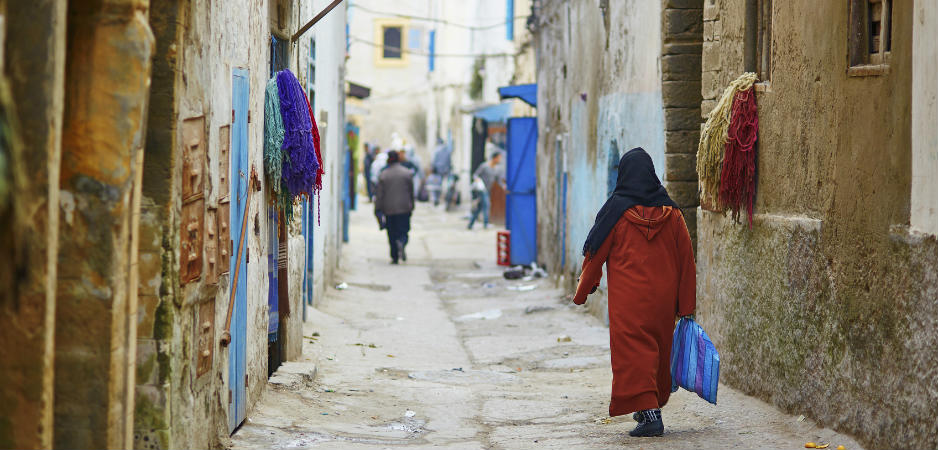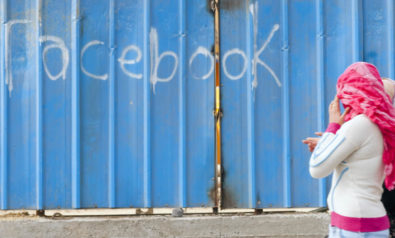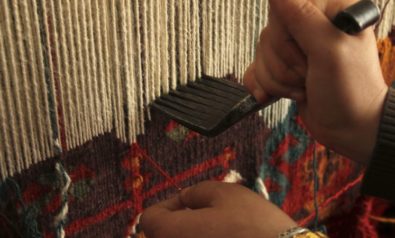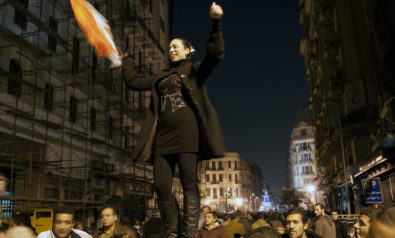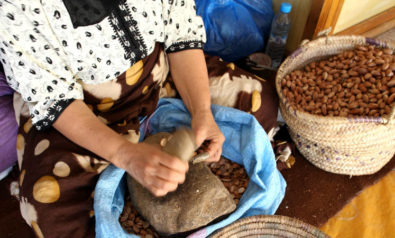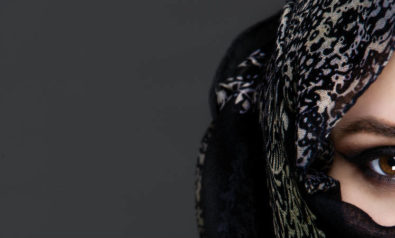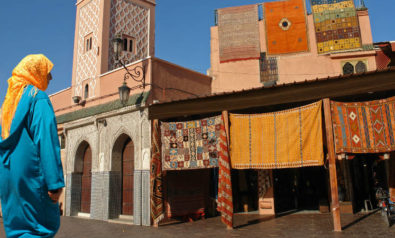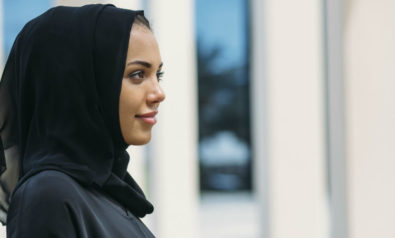Shaping the future is a daunting challenge for girls and women in the Middle East and North Africa.
There is so much attention over what women can’t do in the Middle East and North Africa (MENA) that it is hard to imagine how their societies would function with at least some greater degree of equality and empowerment. Just as challenging is the conflation of all Arab countries into the stereotype of Saudi Arabia, which serves as the archetype of the low status of women in the region, despite their relatively high levels of education and workforce participation (largely due to the requirement for segregated, women-only businesses).
The Arab Spring promised to be a watershed in women’s emancipation. Not only did they have visible leadership roles in Tunisia and Egypt, but their voices were also raised in Morocco, Jordan, Syria and elsewhere. That progress has been shelved and in some countries rolled back despite constitutional changes and visionary statements, largely due to the political and cultural atavists who restrict women’s advancement and commercial networks that are resistant to greater female participation.
In Morocco and Jordan, for example, despite support from Kings Mohammed VI and King Abdullah II, women face obstinate male opposition to greater political and economic participation. Just count the number of women in Jordan’s newly installed government. While Morocco has a very progressive family code, implementation in the courts has been stalled by judges and lawyers who have little or no interest in giving women full rights in a male-dominated society.
According to the World Bank, “Women currently make up 49.7% of around 345.5 million people in the Middle East and North Africa region. But despite the many advances made in terms of closing the gender gap in health, political representation, and labor force participation, many other barriers remain.”
Only in countries with mandated quotas for women is there any depth of representation. While the global average for women in parliament is 25%, across the Arab world women have only 7% of parliamentary seats. At 25% of the workforce—the global average is 50%—the lack of employment affects a woman’s ability to have a life based on her contributions rather than as an extension of a spouse, parent or family.
Despite higher levels of education, often higher than their male counterparts, women remain far behind men in employment and earnings, and are not visible at all at the highest levels of the judiciary.
It is remarkable that the Arab world is “ranked last overall globally” in the World Economic Forum’s Gender Gap Report despite what seems to be higher expenditures on early education, investments in expanding girls educational programs, and greater emphasis on female entrepreneurship and workforce participation. But these figures mask the lack of opportunities that women face when exiting their formative educational years.
WHERE CHANGE IS HAPPENING
Looking at the annual list of the “world’s 100 most powerful Arab women,” it should come as no surprise that only 5% of those named are in government. Whether in business, civil society or in academia, women are making their marks in the private sector while men dominate in government, which may help to explain the unspoken regulations against women in terms of access to financing, legal services and company licensing. Although women slightly outnumber men in higher education across the MENA, their participation even in the educational sector still lags.
In business, some women have utilized their family ties and business acumen—acquired largely abroad or with international companies—to leverage their access to capital and corporate expertise to charge ahead in a range of sectors, most prominently in consumer services, IT, banking, specialty retail sales, pharmaceuticals, educational and health services. For women who are part of the start-up revolution, it is by finding like-minded entrepreneurs and others who pull together via incubators, co-working spaces and social media to develop business opportunities that were unavailable a decade ago.
Women entrepreneurs started by building out the space of social entrepreneurship, largely through engaging local artisans and crafts and retooling them for broader markets, including those accessible through social media. While the idea was to make profits to promote social good, the impact has been much broader, encouraging women of all ages to foray into edgy projects in media; organic and other agricultural sectors; baking and value-added food processing for niche markets; and creating artisanal items for consumption by conferences, advertisers and similar clients.
 Fair Observer provides you deep and diverse insights for free. Remember that we still have to pay for servers, website maintenance and much more. So, donate now to keep us free, fair and independent.
Fair Observer provides you deep and diverse insights for free. Remember that we still have to pay for servers, website maintenance and much more. So, donate now to keep us free, fair and independent.
In Morocco, Manal Elattir started out to train rural women to use the internet to market their handicrafts. Within two years, she realized that her modest social entrepreneurship project had to evolve into a business based on a profit-sharing model if it was to be sustainable. Enlisting support from nongovernmental (NGO) design and production experts, she recently launched her high-end line of Moroccan handicrafts that combine high quality and fashion with traditional designs.
Similar stories are found throughout the MENA region with one thing in common: they are run by women who believe in shaping their own futures for themselves, their families and their communities.
Another global success story from Morocco is the processing and production of argan oil by women-run cooperatives. These first small steps started a series of downstream products such as cosmetic, food supplements, ready-to-wear garments and textile design that all emerged from goats in a tree canopy feasting on argan nuts.
So, women are excelling on the community level, and what has been equally valuable is growing international attention to and support for cementing advances that girls and women have been making to build stronger and more resilient achievements. In Tunisia, Wided Bouchamaoui, the head of the Confederation of Industry, Trade and Handicrafts, was one of the quartet receiving the Nobel Peace Prize. In Morocco, the OPUS prize was awarded to Aicha Ech Chenna for her work with single mothers and girls’ education. These achievements are not lost on girls throughout the region.
Year after year, women in the MENA region are recognized for their leadership, innovations and commitment to advancing human rights, economic empowerment and the intensity they bring to commercial, educational, media and social and human rights campaigns. They are creating something unique: role models that for too long reflected out-of-date traditions not aligned with the knowledge, skills and innovative thinking that girls and women want to demonstrate.
Many communities do not have a role model. Whether it is the local social entrepreneur creating a novel project to empower local craftspeople that increase their incomes and quality of life; the newly educated daughter who wins an international scholarship that enables her to acquire a career by which she is able to support her siblings and parents; or the rising sense of dignity when a girl is told by her parents to be all she can be—these changes are critical.
WOMEN ARE AGENTS OF CHANGE
No one, however, believes that the corner has been turned. As a Wilson Center survey of women analysts and activists five years after the Arab Spring fully demonstrated, the positive outcomes have been few, the setbacks many.
If women are to succeed, international recognition and support acts as the leaven to empower girls and women to set and achieve higher goals. In business and commerce, women are already reaching out and accelerating employment and leadership opportunities for other women. Counterparts in the West should emphasize their support for women-led initiatives to help break down barriers to increased success for women-owned businesses.
And governments, increasingly exposed to evaluations based on their gender-based performance, are challenged to demonstrate that incremental changes being implemented must be accelerated, sustained and broadened.
Women are truly agents of change for the better, and they are vital to the economic prosperity, political stability and social integrity of the MENA region and elsewhere.
The views expressed in this article are the author’s own and do not necessarily reflect Fair Observer’s editorial policy.
Photo Credit: Encrier
Support Fair Observer
We rely on your support for our independence, diversity and quality.
For more than 10 years, Fair Observer has been free, fair and independent. No billionaire owns us, no advertisers control us. We are a reader-supported nonprofit. Unlike many other publications, we keep our content free for readers regardless of where they live or whether they can afford to pay. We have no paywalls and no ads.
In the post-truth era of fake news, echo chambers and filter bubbles, we publish a plurality of perspectives from around the world. Anyone can publish with us, but everyone goes through a rigorous editorial process. So, you get fact-checked, well-reasoned content instead of noise.
We publish 2,500+ voices from 90+ countries. We also conduct education and training programs
on subjects ranging from digital media and journalism to writing and critical thinking. This
doesn’t come cheap. Servers, editors, trainers and web developers cost
money.
Please consider supporting us on a regular basis as a recurring donor or a
sustaining member.
Will you support FO’s journalism?
We rely on your support for our independence, diversity and quality.


